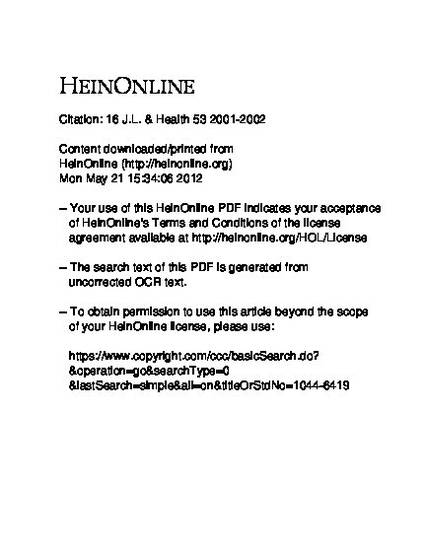
- genetic discrimination,
- Ohio law
The main charge to me is to show you alternatives other than, for instance, federal legislation that could be deployed to rectify genetic discrimination.You may have noticed that in our conference materials, and in a number of the presentations, there has been either an explicit or an implicit call along the lines of “there ought to be a law that ...” Professor Hoffman and I agree: there ought to be some laws, but I want to talk to you a little bit about two possible, two real goals here.One is to ask you to critically evaluate whether a federal statute is the right remedial response at this point in time, and secondly, to ask you to start thinking about the possibility of drafting into service what we in law refer to as traditional state common-law approaches that actually might give us more and better ways to remedy what's going on than simply turning to Congress.
